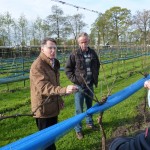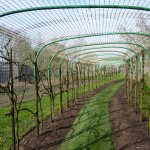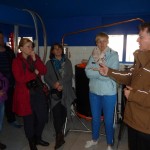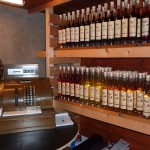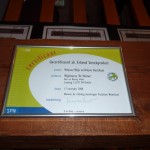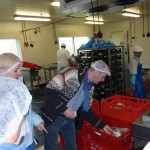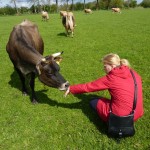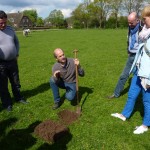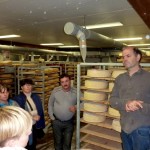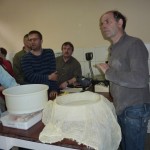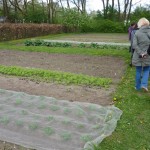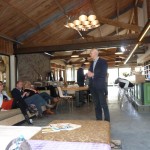The visit in The Netherlands took place in the municipality of Ede, situated in the centre of the Netherlands, part of one of the main tourist destinations ‘De Veluwe’. The main objective of the visit was to exchange ideas and learn about organisational structures for the marketing of local products and the possible interaction and synergy between the marketing of local products and tourism, as part of the reviving of rural areas.
The municipality of Ede is announced as Capital of Good Taste 2014. This means that during the entire year a large number of activities will be organised and structural solutions for the marketing and sales of local products will be developed.
Stichting Streekeigen Producten Nederland (SPN – Foundation for Regional Products the Netherlands) was the host organisation for the visit, in collaboration with the regional tourism board ‘Veluws Bureau voor Toerisme’ (VBT). SPN and VBT developed the local brand Erkend Veluws Streekproduct as a hallmark for local products.
Summary of the programme
Thursday April 10
- Arrivals and Check-in De Wije Werelt, Otterlo
- Word of welcome, short introduction in the region and the activities of SPN and VBT.
- Dinner and social programme
Friday, April 11th
Touristic biking tour (in collaboration with the project team of Ede Capital of Good Taste), visiting….
- Wijnhoeve de Veluwe, Ms. Nanny Schut (wine producer with small-scale camping facilities)
- Ecofields. Mr. Bart Boon (Organic veal producer and butcher)
Encounter with Mr. Breunis van de Weerd, alderman for the municipality Ede and responsible for the campaign ‘Ede Capital of Good Taste 2014’.
- Remeker BV, Mr. Jan Dirk van der Voort (organic dairy farm and artisan cheese maker)
- Makandra, Mr. Christoph (care farm)
- Veluwse Heidebrouwerij, Mr. Gerrit Hammink (local micro brewery)
Diner at ‘De Hooilanden’, dairy farm with cooking studio. Mr. Lodewijk Pool. Preparing dinner with local ingredients, explanation by local Chef Mr. Christian Weij
Saturday April 12th
Workshops / presentations
- ‘Veluwe-fund’ (new forms for financing rural activities) Mr. Jan van Muyden
- Marketing and logistics for local products, an example from the Green Heart of Holland (Groene Hart coöperatie) Ms. Lies van Weverwijk and Ms. Marijke Booij
Visit to National Park ´De Hoge Veluwe´ http://www.hogeveluwe.nl/
- Ms. Emilie Fokker (Executive Officer Communication and Marketing) Success en function of the National Park for the Veluwe as tourist destination.
- Free visit to National Park and Kröller-Muller Museum
Dinner and social programme
Sunday, April 13th
Evaluation
Evaluation of the visit, results and conclusions
The visit was evaluated positively by the participants form Czech Republic and Poland. The following feedback was received:
- The region has an enormous diversity of local (food) products and producers. The producers are developing their markets both locally and more at national level, depending on the product and marketing channel they choose.
- Apart from specialised food production, several farms or enterprises have other activities, like agro tourism, cooking studio’s, excursions etc., that broaden the economic basis of the farm and enriches the region and the regional economy.
- In order to develop a successful artisan local product, one should clearly define quality features and make choices. It is important to have a product that distinguishes from mass production.
- Activities like care farming are a new phenomenon, that might be studied and offer new opportunities also in partner regions.
- A campaign like Capital of Good Taste is a good tool to connect people, producers, organisations and local authorities. The added value has to be proven at longer term, but it creates already new energy and dynamics in a relatively short term.
- The synergy between local products and tourism is apparent, but it also needs branding and certification in order to protect local producers and local products against cheap imports of ‘fake’ local products from outside the region or country.
- New cooperative organisation structures might be good examples to organise logistics and marketing of local products. The Dutch experience shows that it is powerful to build these structures bottom up. A good level of education and training is conditional. Cooperation between producers requires skills and a common shared interest or goal. There has to be a clear added value for all participants.
- New forms of financing to support local development activities are interesting but need to be examined and evaluated.

